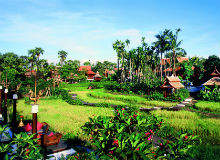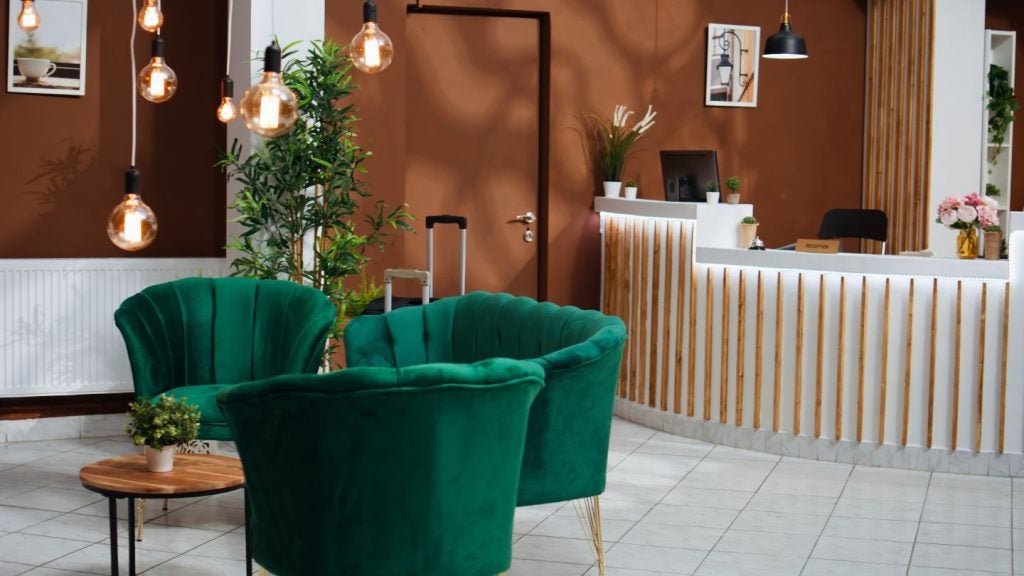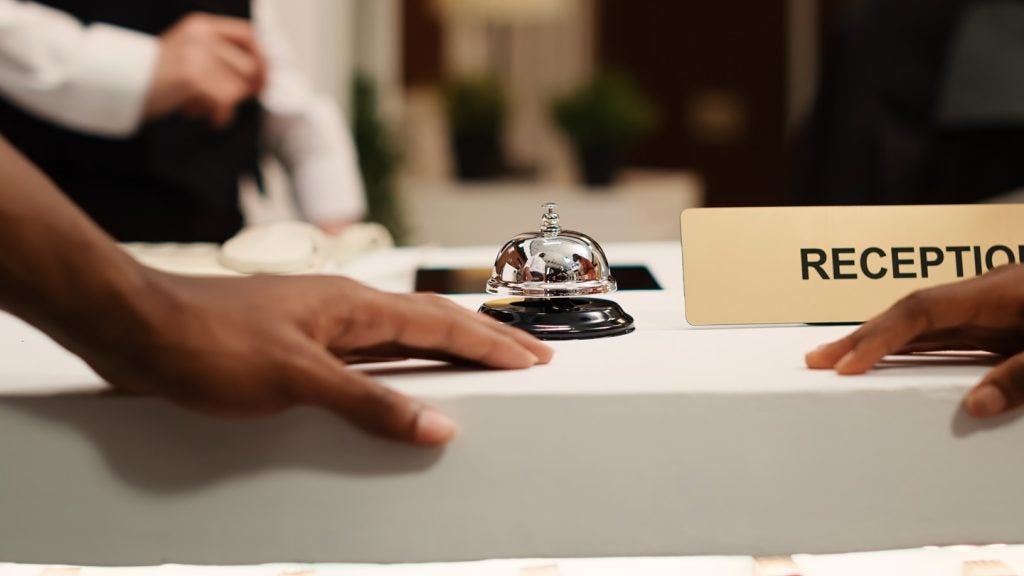
The growth of the destination spa is testament to the fact that a large number of holiday-goers no longer see a vacation as a chance to escape their stringent day-to-day diet regimes. Rather, the modern hotel guest is increasingly seeking a holistic health experience, with the goal of returning home refreshed, reinvigorated and perhaps even armed with extra nutritional nous.
But it’s not only destination spas where guests expect to receive the full well-being treatment. Business and leisure hotels are increasingly realising that consumers who may have previously spent the majority of their stay in the spa now expect to be able to practice healthy living throughout the entire property, causing an industry-wide rethink of the traditional assumption that wellness offerings should be limited to the spa.
Indeed, many operators have begun to introduce specific well-being meals in their restaurants, promote healthy cooking classes and even offer macrobiotic menus to their most health-savvy clients.
"This trend is growing dramatically, particularly because healthy products have become much more easily accessible over the past five years," says Kanyarat Thanomsaeng, executive sous chef at Thailand’s Chiva-Som, a destination spa that has won awards for its gourmet spa cuisine. "Guests are much better educated on well-being."
David Nicholls, corporate director of food and beverage for Mandarin Oriental Hotel Group, agrees: "Body management and wellness are increasing; people want to eat more responsibly, better understanding calories, cholesterol and how foods provide nutrients and energy. We are increasingly aware of the choice we give diners and the need for lighter, fresher, healthier foods."
According to Elisabeth Ixmeier, co-founder of Healing Hotels of the World, agencies are increasingly seeing guests choosing holidays based solely on the health food offers of different hotels. "It’s therefore very important to have healthy food across the whole hotel, not only in the spa," she notes. "At Healing Hotels of the World, this is part of our criteria. The whole hotel is a holistic health experience and food is a very important part of that."
How well do you really know your competitors?
Access the most comprehensive Company Profiles on the market, powered by GlobalData. Save hours of research. Gain competitive edge.

Thank you!
Your download email will arrive shortly
Not ready to buy yet? Download a free sample
We are confident about the unique quality of our Company Profiles. However, we want you to make the most beneficial decision for your business, so we offer a free sample that you can download by submitting the below form
By GlobalDataDelicious and nutritious
Health-conscious hotel guests, however, are still on holiday and as such expect imaginative and above all tasty cuisine. This is something Mandarin Oriental has taken on board, particularly within the spa itself.
"The spa’s beverage selection is determined by the team at each location and is often based on a mixture of vegetables and fruits," notes Andrew Gibson, group director of spa for Mandarin Oriental Hotel Group. "Moreover, in Paris, Thierry Marx has provided a small spa-related amuse-bouche to end a treatment that has proved immensely popular and is a pleasant surprise."
At Chiva-Som, the balance between creating a memorable dining experience and providing nutritionally balanced food is equally important.
"Healthiness, flavour and presentation are equally important for our guests," Thanomsaeng emphasises." We certainly could not offer food that was super-healthy but poorly presented; everything needs to work in harmony."
Following the same philosophy, Dubai-based luxury hospitality group Jumeirah recently appointed the company’s first well-being chef Gabriele Kurz, who is responsible for all healthy dining offerings at Madinat Jumeirah, from the menus at the resort’s signature restaurants to in-room dining, conferences and events, and the food served at the Talise Spa. Kurz, a renowned expert on well-being cuisine, believes that creativity is key to satisfying the needs of her increasingly nutritionally aware guests.
"We can definitely see the culinary world changing at the moment," she remarks. "Imaginative chefs are now seriously taking into consideration what our daily food means. This means really going into depth with our nutritional knowledge and using creativity, high-quality ingredients and preparation techniques to bring to life what customers expect today and in the future.
"50% of health and well-being comes from food and drink so, for me, it is surprising that restaurants haven’t offered flavours with a big impact in conjunction with the right nutritional balance much earlier."
Kurz believes this is down to the gap between chefs’ culinary and nutritional education. "You’re either a nutritionist or a chef," she explains. "There is rarely one person that incorporates both and can work from both angles, building the necessary bridge between the two pillars of what is absolutely essential to bring a nutritionally balanced and innovative menu to life."
The sustainable spa
The hotel and spa-going public is also becoming more and more aware of the importance of sustainability, a buzzword it is almost impossible to avoid regardless of the industry in which you operate. When it comes to cuisine, this means local produce.
"Provenance has become a key byword in cuisine with terms such as farmers’ market, farm-to-table and sustainability all becoming important factors," Nicholls confirms. "People want to know where their food is coming from and what has gone into it more than ever before."
"As more evidence is obtained about the genetic modifying of many food groups, the informed public is questioning the source of food and wants to know that our chefs are acting responsibly," Gibson agrees. "With this in mind many guests are demanding menu choices that provide options including seasonal and local produce. Each one of our chefs takes great pride and immense care to serve our guests the best products available. The menu selection at each of our properties is designed by the local teams with knowledge of the markets, the seasons and the availability of the best products."
For example, the Dhara Dhevi in Chiang Mai, Thailand, has a vegetable garden used to grow select items for the hotel, but, more importantly, to enable guests to plant, tend to and harvest the garden. "Not only does this provide them with the freshest and healthiest ingredients; it also provides a therapeutic opportunity to relax the mind," Gibson explains.
Knowledge is power
Not only are hotel guests increasingly looking for healthy alternatives to the traditional holiday fare, many hope to expand their nutritional knowledge while on the road.
"In terms of education, guests want to know how many calories each meal has and what its special benefits are," Ixmeier explains. "Cooking classes are also very, very popular; diners want to take what they’ve learnt home."
To this end, the Bangkok-based Mandarin Oriental has long been providing a Thai cooking school.
"Thai cooking is based on fresh ingredients and quick cooking (under ten minutes), so it is an ideal cuisine to teach and get our guests to enjoy the experience," remarks Gibson.
The Jumeirah Group has also recognised the importance of educating its more health-conscious guests and has created a new well-being blog www.talisenutrition.com, as a platform to communicate news, health tips and recipes.
"Many doctors advise their clients to adjust their eating habits according to food allergies, weight loss, detox and so on," says Madinat Jumeirah’s well-being chef Gabriele Kurz. "Our guests wish to take tips home from food professionals to enhance their cooking at home."
Spa cuisine gets personal
Just as spa treatments are tailored to the individual preferences of each guest, one healthy menu certainly does not fit all. "Mandarin Oriental has always had a philosophy of giving our guests choices and allowing them the freedom to take their own path," Gibson stresses.
For the super-health-conscious spa-goer this could be a macrobiotic diet or a detox programme, while those who are slightly less stringent may prefer a more gourmet-sounding option, made nonetheless from 100% fresh, local ingredients. According to Thanomsaeng, hotels need to adapt: "We believe that the individual approach is extremely important; everyone has special conditions and eating habits," she says.
As guest expectations continue to heighten, the importance of different well-being options hotel-wide is only set to further increase, and for Kurz, the only way forward is to embrace this trend.
"Menus such as ours attract and inspire a crowd of well-educated, health-conscious, smart people," she concludes. "Our guests are happy to have finally found what they’ve been desperately looking for."







